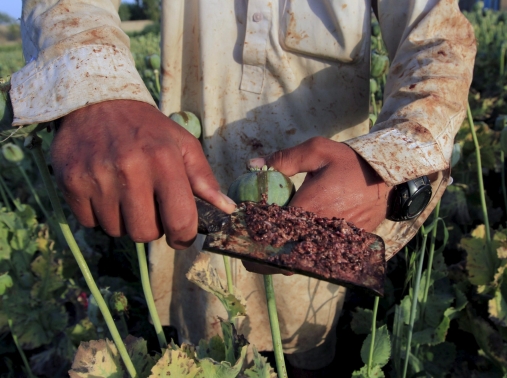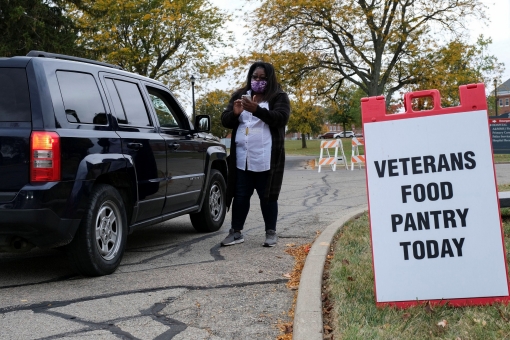|
|
RAND research and commentary on the issues that matter most
|
July 29, 2021
|
|
|
|
|
Photo by Chris Keane/Reuters
|
|
|
|
Black Americans who reside in counties in the South where there was a higher number of lynchings from 1882 to 1930 have lower voter registration today. That's according to a new RAND study.
Even after accounting for other factors that could influence registration—such as education, income, high incarceration rates, and the scarcity of polling places in some counties—the study showed a small but consistent correlation between past lynchings and lower voter registration among Black people.
Jhacova Williams, a RAND economist and the author of the analysis, says it's plausible that past lynching events may have caused Black people to avoid the voting process altogether, creating a culture of voter apathy that affected subsequent generations.
“Lynchings were the original form of voter suppression,” she says. “The legacy of that suppression is still evident today.” Read more »
|

|
|
A staff member stands in front of a launchpad ahead of the Shenzhou-12 mission to build China's space station, Gansu Province, June 16, 2021. Photo by Carlos Garcia Rawlins/Reuters
|
|
America's space capabilities have become integral to its economic prosperity and national security. At the same time, China has its own ambitious set of objectives in space and regards U.S. extraterrestrial activity as an obstacle. A new RAND report considers Beijing's motivations to exploit U.S. vulnerabilities in the space domain—and explores what it might take to build a deterrence strategy tailored for China in space.
Read more »
|
|

|
|
In Afghanistan, the world's largest producer of illegal opium poppy, a farmer harvests raw opium from a poppy head, April 28, 2015. Photo by Parwiz/Reuters
|
|
For decades, illegal opiates have helped sustain farmers and workers in rural Afghanistan, while also funding nonstate actors and insurgent groups. As fentanyl and other synthetic opioids displace heroin in some drug markets, a new RAND paper examines what could happen to Afghanistan if there is a collapse in demand for its opiates. Notably, the authors find that even a gradual decline could lower living standards in an already-poor country and add to migratory pressures.
Read more »
|
|

|
|
Photo by recep-bg/Getty Images
|
|
There has long been evidence that having childcare enables mothers to work. But the pandemic may have also shown the potential gain from investing in childcare, says RAND's Kathryn Edwards. That's because labor force participation isn't just especially low among women with children right now; it's lower among all workers. And the consequences don't end with families' loss of income: When parents stop working, it also leaves employers and a national labor force in need of workers.
Read more »
|
|

|
|
Firefighters mop up hotspots in the northwestern section of the Bootleg Fire as it expands to over 210,000 acres, Klamath Falls, Oregon, July 14, 2021. Photo by Mathieu Lewis-Rolland/Reuters
|
|
Increasingly intense wildfire seasons are taking a mental and physical toll on the firefighters who protect lives and property across America's West. According to RAND's Grace Hindmarch and Aaron Clark-Ginsberg, and Jay Balagna of the Pardee RAND Graduate School, failing to pay more attention to firefighters' mental health could introduce the risk that burnout decimates their ranks. Helpful strategies may include improving mental and physical health supports, decreasing firefighters' workload, and increasing pay and benefits.
Read more »
|
|

|
|
A worker checks the identification of a veteran receiving aid at a food bank in Dayton, Ohio, October 15, 2020. Photo by Jeffrey Dean/Reuters
|
|
Food insecurity is a critical social, economic, and health challenge. But its prevalence among veterans is not well understood. In a new paper, RAND's Tamara Dubowitz examines the magnitude of the problem and considers strategies to counter it. Addressing this issue is especially important for certain groups of veterans who face higher rates of food insecurity, including Afghanistan and Iraq war veterans, women veterans, and veterans with serious mental illness.
Read more »
|
|
|
You already get the latest insights from RAND in your inbox. Why not your earbuds?
Policy Currents is available as a weekly podcast. New episodes every Friday.
Subscribe now »
|
|
|
|
|